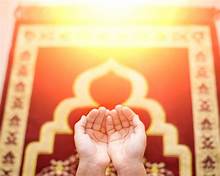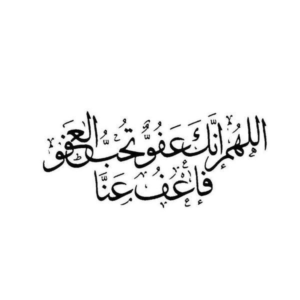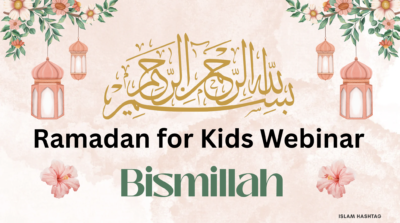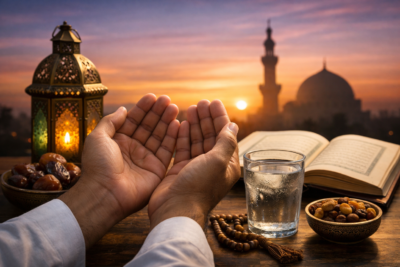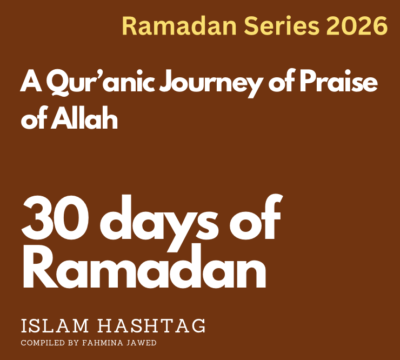Authentic Hadiths on Laylatul Qadr
Laylatul Qadr is also known as the Night of Power. It is a night which is better than 1000 months.
Laylatul Qadr occurs during the last ten nights of Ramadan, and whoever stays up during these nights out of faith and seeking reward will have all of their sins forgiven.
Read – Signs of Laylatul Qadr
Laylatul qadr dua
لَيْلَةَ (Lailah) means night ,الْقَدْرِ (Al-Qadr) has one of two meanings…1st Meaning = Honour 2nd Meaning = Decree
Abu Bakr Al-Warraq said: “It is called the Night of Honour because the one who did not have any status (with Allah) due to inaction, now has been given a special status (honour) due to their ibadah (worship) on this night.”
The Messenger of Allah صلى الله عليه وسلم said: “…in it there is a night which is better than a thousand months, and whoever is deprived of its goodness is certainly deprived .”[Lata’if Al-Ma’arif (p.368)]
Hadith on Laylatul Qadr: Virtue of laylatul Qadr
It was narrated that Abu Hurairah said: “The Messenger of Allah said: ‘There has come to you Ramadan, a blessed month, which Allah, the Mighty and Sublime, has enjoined you to fast. In it the gates of heavens are opened and the gates of Hell are closed, and every devil is chained up. In it Allah has a night which is better than a thousand months; whoever is deprived of its goodness is indeed deprived.”‘Sunan an-Nasa’i 2106“
Is Laylat al-Qadr mentioned in Quran?
The Quran, the holy book of Islam, mentions Laylat al-Qadr in several verses. The most prominent reference is found in Surah Al-Qadr (97:1-5), where it is described as “better than a thousand months.” This verse emphasizes the significance of this night and its potential for spiritual growth and reward.
Additionally, Surah Al-Dukhan (44:3-4) mentions Laylat al-Qadr as a blessed night when Allah’s decrees are sent down. Surah Al-Baqarah (2:185) also refers to it as a night of great importance and encourages Muslims to seek it out during the last ten nights of Ramadan.
Overall, these Quranic references highlight the importance of Laylat al-Qadr and emphasize its role as a night of great spiritual significance in the Islamic faith.
Hadith on the dates of Laylatul Qadr
أَخْبَرَنَا بِشْرُ بْنُ هِلاَلٍ، قَالَ حَدَّثَنَا عَبْدُ الْوَارِثِ، عَنْ أَيُّوبَ، عَنْ أَبِي قِلاَبَةَ، عَنْ أَبِي هُرَيْرَةَ، قَالَ قَالَ رَسُولُ اللَّهِ صلى الله عليه وسلم “ أَتَاكُمْ رَمَضَانُ شَهْرٌ مُبَارَكٌ فَرَضَ اللَّهُ عَزَّ وَجَلَّ عَلَيْكُمْ صِيَامَهُ تُفْتَحُ فِيهِ أَبْوَابُ السَّمَاءِ وَتُغْلَقُ فِيهِ أَبْوَابُ الْجَحِيمِ وَتُغَلُّ فِيهِ مَرَدَةُ الشَّيَاطِينِ لِلَّهِ فِيهِ لَيْلَةٌ خَيْرٌ مِنْ أَلْفِ شَهْرٍ مَنْ حُرِمَ خَيْرَهَا فَقَدْ حُرِمَ ” .
Narrated AbuSa’id al-Khudri:
The Prophet (ﷺ) said: Seek it (laylat al-Qadr) in the last ten days of Ramadan. Seek it on the ninth, seventh and fifth night. I (AbuNadrah) said: You know counting better than us, AbuSa’id. He said: Yes. I asked: What do you mean by the ninth, seventh and fifth night? He said: When the twenty-first night passes, the night which follows it is the night; when the twenty-third night passes, the night which follows it is the seventh; when the twenty-fifth passes, the night which follows it is the fifth. Abu Dawud said: I do not know whether anything remained hidden from me or not. (Grade Sahih Sunan Abi Dawud 1383)
Laylatul Qadr/Night of Decree- a gift to the Ummah, rewards of 1000 months in 1 night
وَحَدَّثَنِي زِيَادٌ، عَنْ مَالِكٍ، أَنَّهُ سَمِعَ مَنْ، يَثِقُ بِهِ مِنْ أَهْلِ الْعِلْمِ يَقُولُ إِنَّ رَسُولَ اللَّهِ صلى الله عليه وسلم أُرِيَ أَعْمَارَ النَّاسِ قَبْلَهُ أَوْ مَا شَاءَ اللَّهُ مِنْ ذَلِكَ فَكَأَنَّهُ تَقَاصَرَ أَعْمَارَ أُمَّتِهِ أَنْ لاَ يَبْلُغُوا مِنَ الْعَمَلِ مِثْلَ الَّذِي بَلَغَ غَيْرُهُمْ فِي طُولِ الْعُمْرِ فَأَعْطَاهُ اللَّهُ لَيْلَةَ الْقَدْرِ خَيْرٌ مِنْ أَلْفِ شَهْرٍ .
Ziyad related to me from Malik that he had heard a man he trusted of the people of knowledge say, “The Messenger of Allah, may Allah bless him and grant him peace, was shown the lifespans of the people (who had gone) before him, or what Allah willed of that, and it was as if the lives of the people of his community had become too short for them to be able to do as many good actions as others before them had been able to do with their long lives, so Allah gave him Laylat al- Qadr, which is better than a thousand months.”(muwatta malik Book 19, Hadith 16)
Narrated Abdullah ibn Mas’ud:
The Messenger of Allah (ﷺ) said to us: Seek it (laylat al-Qadr) on the seventeenth night of Ramadan, and on the twenty first night, and on the twenty-third night. He then kept silence. Sunan Abi Dawud 1384
حَدَّثَنَا حَكِيمُ بْنُ سَيْفٍ الرَّقِّيُّ، أَخْبَرَنَا عُبَيْدُ اللَّهِ، – يَعْنِي ابْنَ عَمْرٍو – عَنْ زَيْدٍ، – يَعْنِي ابْنَ أَبِي أُنَيْسَةَ – عَنْ أَبِي إِسْحَاقَ، عَنْ عَبْدِ الرَّحْمَنِ بْنِ الأَسْوَدِ، عَنْ أَبِيهِ، عَنِ ابْنِ مَسْعُودٍ، قَالَ قَالَ لَنَا رَسُولُ اللَّهِ صلى الله عليه وسلم “ اطْلُبُوهَا لَيْلَةَ سَبْعَ عَشْرَةَ مِنْ رَمَضَانَ وَلَيْلَةَ إِحْدَى وَعِشْرِينَ وَلَيْلَةَ ثَلاَثٍ وَعِشْرِينَ ” . ثُمَّ سَكَتَ .
Hadith on Laylat ul-Qadr: Whoever is present at Isha
وَحَدَّثَنِي زِيَادٌ، عَنْ مَالِكٍ، أَنَّهُ بَلَغَهُ أَنَّ سَعِيدَ بْنَ الْمُسَيَّبِ، كَانَ يَقُولُ مَنْ شَهِدَ الْعِشَاءَ مِنْ لَيْلَةِ الْقَدْرِ فَقَدْ أَخَذَ بِحَظِّهِ مِنْهَا .
Ziyad related to me from Malik that he had heard that Said ibn al-Musayyab used to say, “Whoever is present at isha on Laylat al-Qadr has taken his portion from it.”(Muwatta malik Book 19, Hadith 17)
What is the hadith about Laylatul Qadr Dua?
A’ishah (may Allah be pleased with her) said: “I said: O Messenger of Allah, If I realize Laylat-ul-Qadr (Night of Decree), what should I supplicate in it? He said: You should supplicate: Allahumma innaka Afuwwun, Tuhibbul-FafuAnni (O Allah, You are Most Forgiving, and You love forgiveness; so forgive me).” [Reported by At-Tirmidhi who said: this is a good and authentic Hadith].At-Tirmidhi (3513), Ibn Majah (3850),
In another wordings of Ibn Majah: A’ishah (may Allah be pleased with her) narrated that she said: “O Messenger of Allah, what do you think I should say in my supplication, if I come upon Laylatul-Qadr? He said: You should say: Allahumma innakaAfuwwun, Tuhibbul afwa fafu Anni (O Allah, You are Most Forgiving, and You love forgiveness; so forgive me).”
Read more on Allahumma innakaAfuwwun dua
Discover more from Islam Hashtag
Subscribe to get the latest posts sent to your email.

